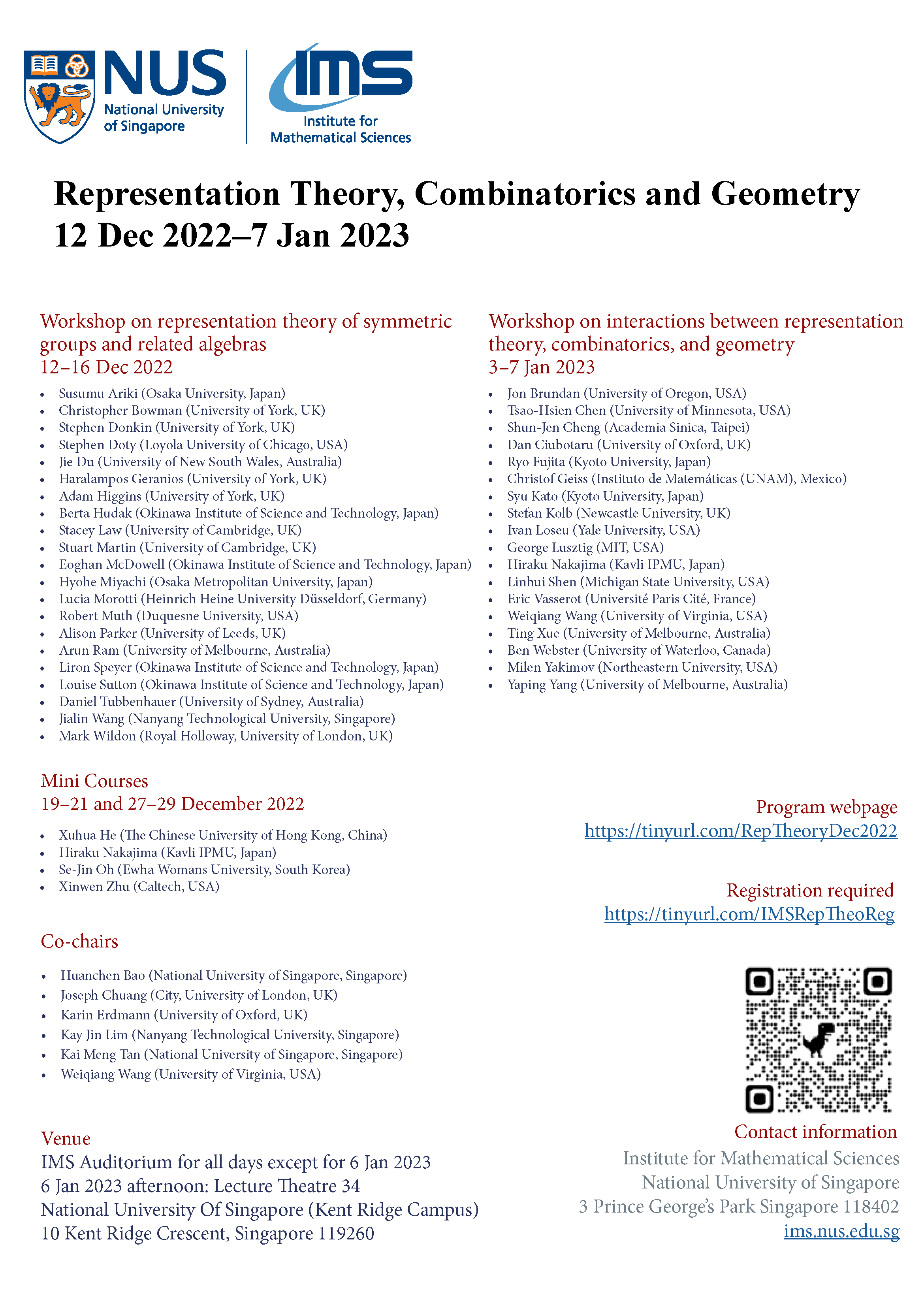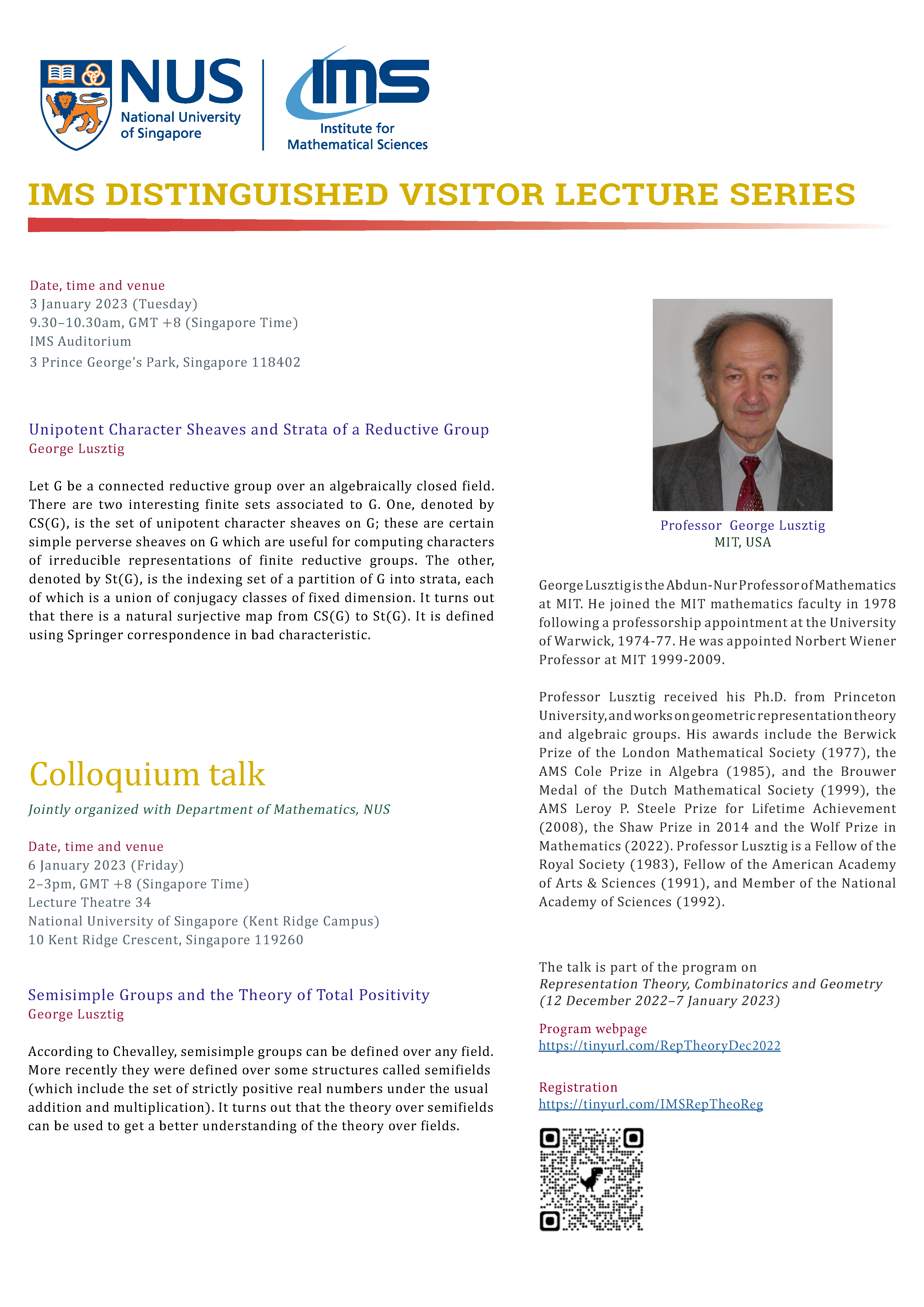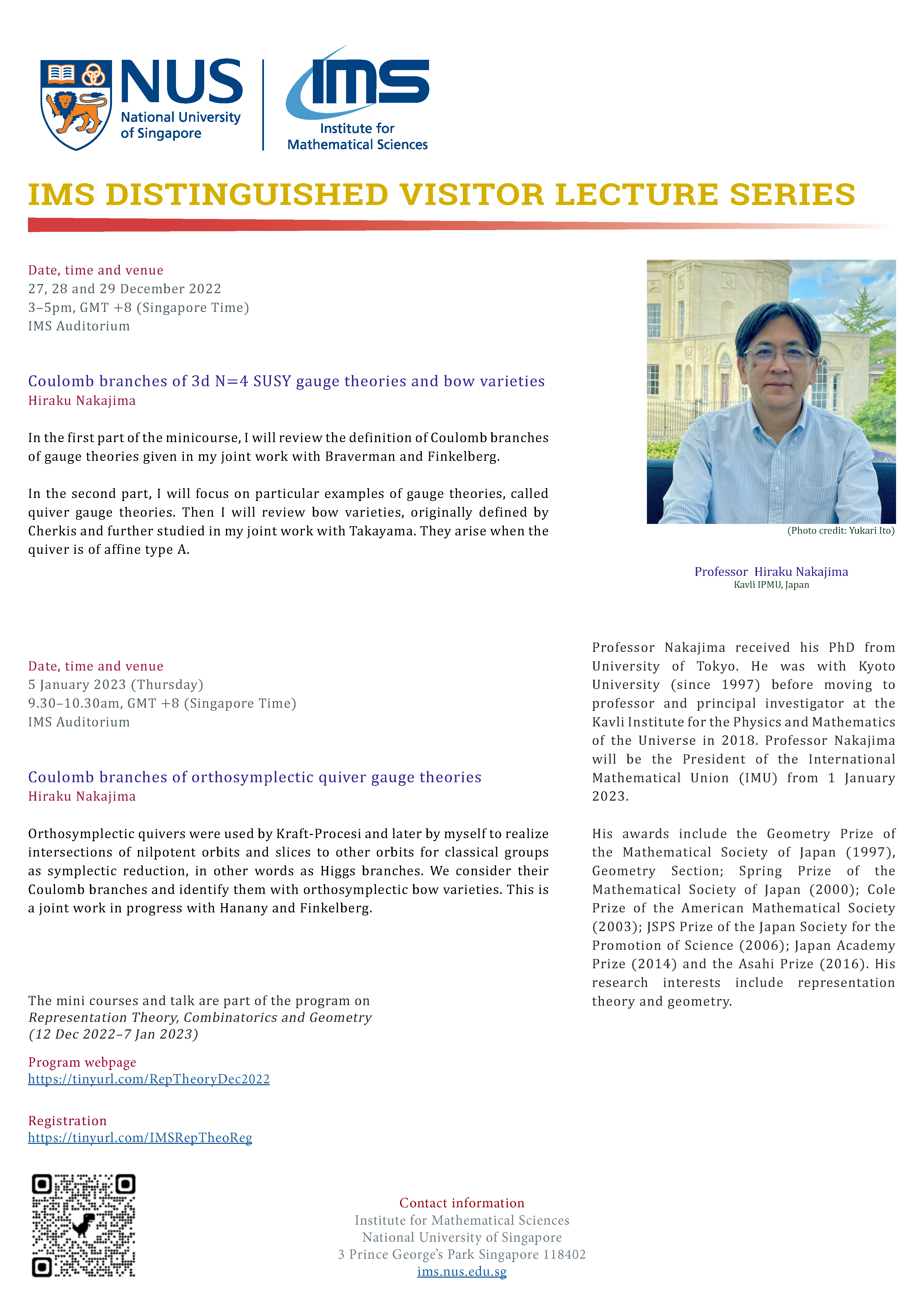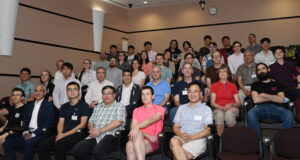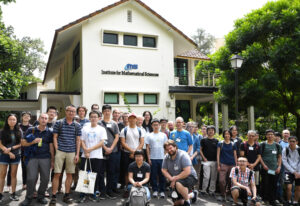Organizing Committee
Co-chairs
- Huanchen Bao (National University of Singapore)
- Joseph Chuang (City, University of London)
- Karin Erdmann (University of Oxford)
- Kay Jin Lim (Nanyang Technological University)
- Kai Meng Tan (National University of Singapore)
- Weiqiang Wang (University of Virginia)
Contact Information
General Enquiries: ims-enquiry(AT)nus.edu.sg
Scientific Aspects Enquiries: huanchen(AT)nus.edu.sg; tankm(AT)nus.edu.sg;
Overview
This one-month program focuses on representation theory of symmetric groups and related algebras, as well as various interactions between representation theory, combinatorics, and geometry.
The representation theory of symmetric groups and related algebras is a vibrant and dynamic research area, with many unsolved problems and sometimes surprising links to other areas, such as number theory and algebraic topology. Recent progress on fundamental questions about symmetric groups has been made through a blend of ideas approaching the representation theory from different perspectives:
- as a finite group to which one can apply character theory and modular representation theory;
- as a special finite group closely connected with algebraic combinatorics;
- as a prototypical diagrammatic algebra;
- as one side of Schur-Weyl dualities with algebraic groups;
- as a group acting naturally on algebraic varieties or on topological spaces.
The second part of the program focuses on various interactions between representation theory, combinatorics, and geometry. The representation theory of symmetric groups and related algebras is a good example of such intrinsic connections. Other examples include:
- the famous Kazhdan-Lusztig polynomials capture the singularity of Schubert varieties, and also encode the character formulas of semi-simple Lie algebras;
- the combinatorial study of Kazhdan-Lusztig polynomials even implements tools from machine learning recently;
- the construction of canonical bases by Lusztig using moduli of quiver representations can be seen as another such interaction between representation theory and geometry;
- the (dual) canonical bases spark the study the cluster algebras by Fomin and Zelevinsky, which are further intertwined with the combinatorial and geometric study of totally positive flag varieties.
The program aims to bring together leading researchers in the area to discuss the latest developments in the field, chart out new directions for research and explore possible collaborations.
The program is structured as follows:
- the first part of the program (12 Dec 2022 – 16 Dec 2022) consists of a workshop devoted to the representation theory of symmetric groups and related algebras;
- the workshop shall be followed by several mini courses covering topics including geometric and modular representation theory, cluster algebras, total positivity, etc.;
- the final part of the program (03 Jan 2023 – 07 Jan 2023) consists of another workshop aiming at the interactions between representation theory, combinatorics, and geometry.
Activities
Public Holidays:
25 December 2022, Christmas Day. Monday, 26 December 2022, is a public holiday.
1 January 2023, New Year’s Day. Monday, 2 January 2023, is a public holiday.
| Date | Abstract | |
|---|---|---|
| Workshop on representation theory of symmetric groups and related algebras | 12–16 December 2022 | View |
| Mini Courses | 19–21 and 27–29 December 2022 | View |
| Workshop on interactions between representation theory, combinatorics, and geometry | 3–7 January 2023 | View |
Venue
IMS auditorium for all days, except for 6 January 2023 afternoon.
Workshop 2 (6 January 2023 afternoon): LT34
Address of LT34
National University Of Singapore (Kent Ridge Campus)
10 Kent Ridge Crescent, Singapore 119260

